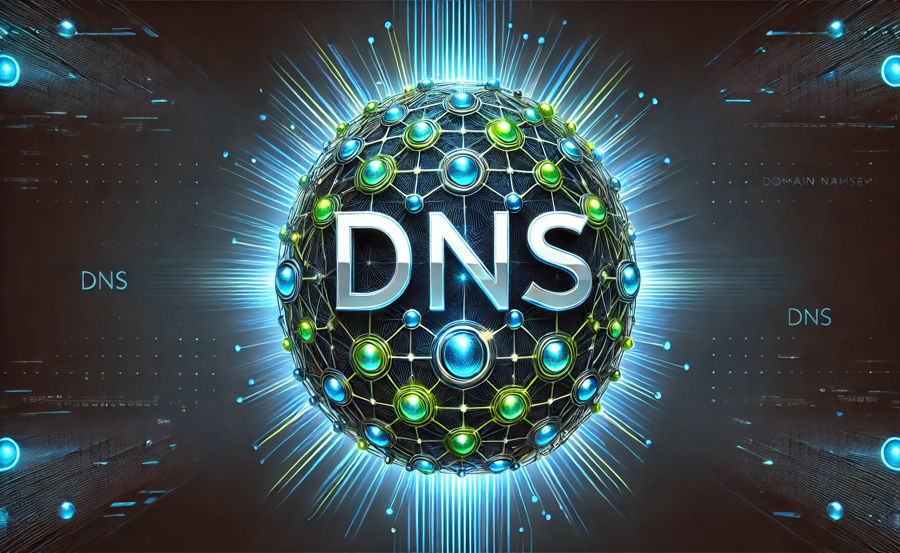Choosing the right DNS (Domain Name System) can greatly influence the quality of your IPTV (Internet Protocol Television) experience. While your ISP (Internet Service Provider) provides its own DNS, many users opt for third-party DNS providers to improve performance, reliability, and privacy. This article delves into the differences between ISP DNS and third-party DNS, helping you decide which is better for your IPTV needs. Want one year IPTV subscription
What is ISP DNS?
ISP DNS is the default DNS service offered by your internet service provider. Whenever you connect to the internet, your devices automatically use the ISP’s DNS to resolve domain names into IP addresses.
Advantages of ISP DNS
- Default Configuration: Requires no setup; it works out of the box.
- Local Optimization: ISP DNS servers are often geographically closer, reducing latency in some cases.
- Direct Support: ISPs typically offer troubleshooting support for their DNS services.
Disadvantages of ISP DNS
- Slower Speeds: ISP DNS servers may not be optimized for high-speed performance.
- DNS Throttling: Some ISPs intentionally slow down certain services like IPTV or streaming platforms.
- Limited Privacy: ISPs can log your browsing activity and sell the data to third parties or use it for targeted ads.
- Frequent Downtime: ISP DNS servers can experience outages, affecting IPTV streaming reliability.
What is Third-Party DNS?
Third-party DNS services are external DNS providers such as Google DNS, Cloudflare DNS, or OpenDNS. They are designed to offer faster, more reliable, and secure DNS resolution.
Advantages of Third-Party DNS
- Improved Speed: Third-party DNS providers often have faster response times, reducing buffering and delays.
- Bypass ISP Throttling: They help overcome ISP-imposed restrictions on IPTV services.
- Enhanced Privacy: Many providers, such as Cloudflare, offer no-logging policies to protect user data.
- Global Reach: With a wide network of servers, third-party DNS providers deliver consistent performance worldwide.
- Advanced Features: Options like malware blocking, parental controls, and encrypted DNS queries (DoH and DoT).
Disadvantages of Third-Party DNS
- Setup Required: You must manually configure devices or routers to use third-party DNS.
- Location Dependence: If the third-party DNS server is far from your region, it may increase latency.
ISP DNS vs. Third-Party DNS: Key Comparisons
| Feature | ISP DNS | Third-Party DNS |
|---|---|---|
| Speed | Can be slower due to under-optimized servers. | Typically faster, especially with providers like Cloudflare and Google. |
| Reliability | May experience frequent outages. | Highly reliable with global server redundancy. |
| Privacy | Logs user data and activity. | Often privacy-focused with no-logging policies. |
| Security | Basic security measures. | Advanced security like malware and phishing protection. |
| Ease of Use | Works automatically; no setup required. | Requires manual configuration. |
| Cost | Included in your ISP subscription. | Free or minimal costs for premium features. |
| Best Use Case | General internet browsing. | Streaming IPTV or gaming with high performance and security needs. |
Why Third-Party DNS is Better for IPTV

- Faster Channel Loading:
Third-party DNS providers like Google and Cloudflare reduce the time it takes to connect to IPTV servers, minimizing buffering. - Bypass Geo-Restrictions:
Some DNS providers, like SmartDNS, are specifically designed to unblock region-locked content on IPTV platforms. - Avoid ISP Throttling:
ISPs often throttle streaming services to manage bandwidth. Using a third-party DNS can help bypass these restrictions. - Enhanced Streaming Stability:
With better uptime and redundancy, third-party DNS ensures uninterrupted IPTV streaming.
Top Third-Party DNS Providers for IPTV
- Google DNS:
- IP:
8.8.8.8and8.8.4.4 - Known for its reliability and speed.
- IP:
- Cloudflare DNS:
- IP:
1.1.1.1and1.0.0.1 - Prioritizes speed and privacy, making it ideal for IPTV.
- IP:
- OpenDNS:
- IP:
208.67.222.222and208.67.220.220 - Offers advanced security features.
- IP:
- Quad9 DNS:
- IP:
9.9.9.9and149.112.112.112 - Blocks malicious domains, ensuring safer streaming.
- IP:
- SmartDNS Services:
- Paid DNS services designed to unblock geo-restricted IPTV content.
How to Switch from ISP DNS to Third-Party DNS
On Your Router:
- Log in to your router’s admin panel (usually
192.168.1.1). - Navigate to DNS settings under the network configuration.
- Replace the ISP DNS with your chosen third-party DNS (e.g., Google DNS or Cloudflare DNS).
- Save the settings and restart the router.
On Individual Devices:
- Smart TVs: Go to Network Settings > Advanced Options > DNS and input the new DNS addresses.
- Streaming Devices (e.g., Firestick, Roku): Access Wi-Fi Settings > Configure DNS, and enter the preferred addresses.
Testing DNS Performance for IPTV
After switching to a third-party DNS, test its performance:
- Stream IPTV Content: Monitor buffering times and video quality.
- Use DNS Benchmark Tools: Tools like DNS Benchmark (Windows) and Namebench (Mac) compare DNS response times.
- Ping Tests: Run a ping test (
ping 8.8.8.8) to measure latency.
Conclusion
While ISP DNS may be sufficient for basic browsing, third-party DNS is clearly superior for IPTV users. It offers faster speeds, greater reliability, and advanced features like privacy protection and malware blocking. For most IPTV users, a third-party DNS like Cloudflare or Google will deliver the best streaming experience.
The Impact of 5G on IPTV Performance and Quality

